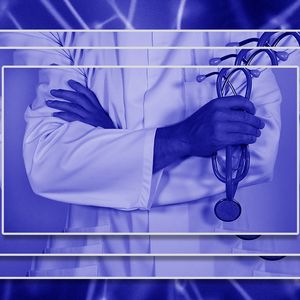Australian GPs have their "heads in the sand" when it comes to preparing for the impact artificial intelligence (AI) technology will have in their workplace, according to a respected Sydney GP examiner.
Dr Simon Cowap, who runs a practice in inner Sydney and is an examiner for the Royal Australian College of General Practice(RACGP), said the profession is very people-focussed and has been "quite slow" to adapt to new technology.
"I don't think GPs quite understand, on the whole, how close this stuff is, they think it is sort of at the end of town," he said.
He expects AI technology to enter the "humble GP practice quite soon", with the potential already there to collect and analyse large amounts of data and then generate diagnostic and treatment recommendations. He said the next step will be a situation where patients consult some kind of AI-driven voice recognition software which asks the patient questions and takes a history, much like the doctors do. Then, within the next 20 to 30 years, a fully operational independent AI doctor will be a reality.
Asked how GPs will cope with such a move, Cowap said: "A lot of people in general practice have their head in the sand." A computer system taking over a portion of a GP's job is a reality doctors need to accept, he said, but that does not mean the human GP role will disappear.
Toby Walsh, author of 2062: The World that AI Made, said "the machines might be physically and cognitively better than us at these (STEM) jobs, but we will nevertheless choose to have people do them."
"We would prefer a human, someone that understands our psychology and has empathy to help us interpret these [health data] results," Walsh, Scientia professor of artificial intelligence at UNSW Sydney, said in a recent lecture at the university.
'We don't do a good job of looking at the likely impact of what sort of tools will come out of this … and how it is going to affect our practice.'
The GP role will not disappear but AI will spell changes. The Federal Government Medicare Benefits Scheme review, set up in 2015 and which is now nearing completion, raised questions about the need for a GP to act as gatekeeper to specialised services with the introduction of autonomous artificial technology.
There is large amount of data available now that is not used, said Cowap, and those records have "huge potential" to be put into practice with AI technology to help manage patients and the growing ageing population in Australia.
The question is how comfortable the general public is with that. Collection of data and how it is used is a vexed issue in Australia. The Federal government's controversial electronic My Health Record scheme hit a speed bump last year over privacy concerns. When the opt-out period finally concluded on January 31, 2019, one in 10 eligible participants, more than 2.5 million people, had opted out of the scheme.
That said, the AI sector is booming. Market research company Frost & Sullivan estimates in the United States, the global hub for AI healthcare tech developments, AI and cognitive computing has the potential to deliver savings of more than US$150 billion for the healthcare industry by 2025.
However, incorporation of this AI technology into general practice in Australia will require data literacy. Recent research by Qlik, a data visualisation software seller, claimed only 12 per cent of Australia's healthcare professionals were data literate, below the already low global average of 15 per cent.
Cowap believes RACGP examiners, himself included, are falling behind in preparing students with the necessary analytical skills for this AI-incorporated future. "To be honest, we don't do a good job of looking at the likely impact of what sort of tools will come out of this [AI technology] … and how it is going to affect our practice," he said.
Cowap has recommended to the RACGP that medical professionals familiarise themselves with the possibility of AI and would like to see better communication with the tech community, through conferences, talks, education and presentations on what is happening with AI and other branches of medicine.
"We have a responsibility to be abreast of things coming down the pipeline that will affect the members and in their role in education and training," Cowap said.
The RACGP declined to respond to a series of questions from Newsworthy on the AI preparedness of its members.
Despite the "head in the sand" approach, Cowap remains positive about a scenario of GPs working alongside AI in the future. "I think that as other parts of medicine are being sub-specialised ... you still need someone who is at the centre of the whole thing," he said. "All that kind of technology has to work within the confines of the clinical relationship with the patient …we want to utilise the technology, but we also don't want to be blinded by it."
Walsh agreed: "We will end up with more GPs in the future and fewer specialists."
Deanna, a coffee enthusiast, has graduated with a Bachelor of Media (Journalism & Communication) degree from UNSW. She is obsessed with Hollywood films and hopes to one day star in one.
